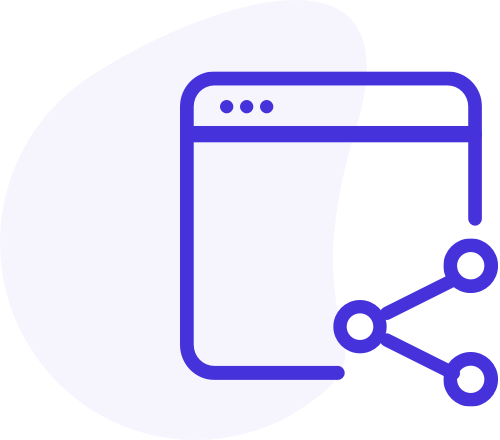Any business that hits a certain growth milestone should consider expanding — that’s something everyone knows.
Expanding means access to new markets, providing access to a larger customer base in new countries, potentially increasing revenue streams and reducing dependence on a single market’s fluctuations. Operating in multiple countries or regions spreads risk. A downturn in one market might be offset by growth in another, providing a buffer against economic fluctuations.
Companies who expand also enjoy economies of scale. Increased production or sales volume can lead to economies of scale, reducing per-unit costs and potentially improving profit margins.
What everyone doesn’t know is that expanding requires careful consideration and planning, including diversifying sales efforts with outsourced lead generation services.
Whether your company is just starting to think about it or you’re already in the process of expanding globally, be sure to read on for useful tips on research, GTM strategy and what an outsourced lead generation business can do to keep you on track during this major transition..
Go-To Market Planning Increases Stability
Before expanding a business into a new country or region, it’s paramount that you assess the market’s stability; for instance, when establishing an arizona single member llc, understanding the political and economic climate can help mitigate potential risks.
This makes it imperative to research all legal and regulatory compliance issues. Investigate legal requirements, trade regulations, tax implications, and compliance standards in target countries. Consider forming partnerships or alliances to navigate these complexities.
Remember also that some governments are more prone to making sudden policy changes, increasing the challenge of functioning efficiently. To minimize the risks associated with expanding into unpredictable regions, consider reaching out to your local embassy or chamber of commerce. They can help you ascertain whether a new region is stable enough to support your business. Similarly, when stepping into new financial platforms, it helps to know the perks available—like learning how to claim free shares on Trading 212—so you can make the most of every opportunity with more confidence.
Plan for logistics, warehousing, and supply chain management, as well. Consider how you’ll manufacture, distribute, and deliver products efficiently in new regions. Alongside logistics comes technology and infrastructure; assess technological needs in target regions and ensure your systems, infrastructure, and IT capabilities can support global operations and adapt to local requirements.
Carefully Rollout Business Development to Achieve Market Fit
Here’s a quick list of biz dev considerations you should employ as you prepare to expand:
Market Research: Understand the global market. Identify countries or regions where there’s demand for your product/service. Analyze demographics, competition, cultural nuances, and economic factors.
Financial Planning: Assess the financial feasibility of expansion. Determine costs involved in market entry, production, distribution, and ongoing operations. Evaluate funding options, such as working with private debt asset managers, who can provide tailored solutions to meet your business’s financial needs, and explore potential revenue streams. Non-bank lenders now supply nearly 30% of private debt, highlighting their pivotal role in Australia’s credit ecosystem. Compare top private debt investments, borrowing options, and non-bank lending asset managers to make informed decisions. Find the best private debt asset managers in Australia with GQE.
Cultural Adaptation: Understand cultural differences that might impact your business. Adapt your product, marketing, and communication strategies to resonate with local preferences and behaviors.
Strategic Partnerships and Alliances: Consider partnering with local businesses, distributors, or influencers who understand the market. They can provide valuable insights and help establish your brand.
Consider these four strategies, and your market expansion efforts will be more seamless and rewarding — with fewer headaches along the way.
Sales Outsourcing Helps You Target More Efficiently
Outsourcing is a key part of any outbound sales strategy and can help you focus and target geographically, so that you can better devote your time to the challenges listed above.
Instead of establishing a full-fledged sales team in each new geographical area, outsourcing allows you to tap into existing networks and expertise without the heavy upfront investment in infrastructure, salaries, and training. This will save valuable time and labour resources.
Because you’re expanding to scale, remember that outsourced sales models can be easily scaled up or down based on your expansion needs. Whether you’re testing a new market or aiming for rapid growth, you can adjust the outsourced team’s size accordingly.
Finally, outsourcing leads to faster market penetration. Leveraging an outsourced sales force means tapping into an existing network that might already have established relationships with potential clients or customers in the very regions you’re looking to serve. This can expedite your market entry and sales process.
Expanding your business to a new market can be a great way to build brand awareness and increase revenue, but it’s not a decision that should be made lightly. From language barriers and cultural differences to regulatory compliance, there are many things to consider when expanding your business to a new market.
If you’re curious how to outsource your sales to expand to new markets properly, make BitWide part of your Go-to-Market strategy. We can help you target new business in nearly every country around the world. Get in touch with us today to learn more.









